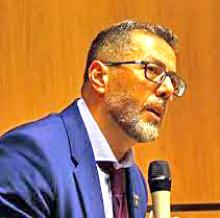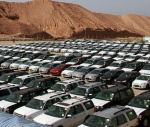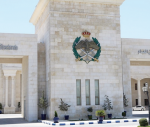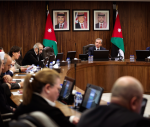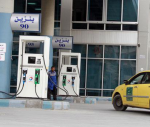You are here
‘Things I learned writing about the Middle East’
Dec 30,2014 - Last updated at Dec 30,2014
Writing and reporting about the Middle East is not an easy task, especially during these years of turmoil and upheaval.
Following and reporting on the constant changes without a deep and compassionate understanding of the region will achieve predictable and lackluster content that offers nothing original but recycled old ideas and stereotypes.
From my humble experience in the region, I share these “dos” and “don’ts” as to how the Middle East should be approached in writing and reporting.
— Question terminology. To start with, the term “Middle East” is itself highly questionable. It is arbitrary, and can only be understood in the context of its proximity to some other entity, Europe, whose colonial endeavours imposed classifications on the rest of the word.
To question the term “Middle East” is to become conscious of the colonial history, and the enduringly fierce economic and political competition felt in every facet of life in the region.
Keep this in mind and learn to question many other terms: extremist, radical, moderate, terrorist, pro-Western, liberal, socialist, Islamist, Islamic, anti-Islamist, secularist and so on.
These are mostly misleading labels. They might not mean at all what one thinks they mean. Their use is often political and not direct reference to an ideological or political position.
— Learn the language. If reporting is intrinsically linked to the Middle East, one must learn a language of the region. If one is not an Arabic-speaking journalist, one must invest the time to learn Arabic, or Farsi, Turkish, etc., depending on the specific field of interest.
Even a local companion would hardly help bridge the language divide, for she/he would likely have biases and limitations. Moreover, much is often omitted and lost in translation.
Speaking the language will gain one more than access; it would earn trust and help one develop real compassion for the people who are in greater need to be heard.
— Start at the bottom. Arundhati Roy is quoted as saying: “There’s really no such thing as the ‘voiceless’. There are only the deliberately silenced, or the preferably unheard.”
Every Middle Eastern country has its educated elite. It is often approached by the media out of convenience. It often speaks one foreign language or another; it knows what a sound bite is, it does not require much training, and it is always ready with its talking points.
Although they may be the ideal media guests, they may be the least qualified to comment on a story.
One’s best bet as a reporter is to start at the bottom, with the people who are mostly affected by whatever story one is reporting: the victims, their families, eyewitnesses and the community as a whole.
While such voices are often neglected or used as content fillers, they should become the centre of any serious reporting from the region, especially in areas that are torn by war and conflict.
— Side with the victim, but be careful. True, there might be more than one side to the same story, but that should not be the driving force of one’s reporting.
Start by being aware of the limitations of reporting on a story without feeling sympathy for people who are the subject of the report: A Syrian mother separated from her children, a Gaza father who lost his wife and five children to Israeli bombs, an Egyptian democracy activist on a prolonged hunger strike, etc.
One of the greatest flaws in reports about the war in Syria is the simplistic and polarising approach and terminology.
Most media weep for the Syrian people, but the victim and victimiser differ when seen from the perspective of Al Jazeera, Al Mayadeen, Press TV, Russia Today, Fox News or the BBC.
Deciding who qualifies to be a victim is a highly political issue with far-reaching consequences.
— Learn history. Consider this: A once fringe group like the Houthis of Yemen is becoming the kingmaker of a country whose central government is in name only and whose military is divided along sectarian, regional and tribal allegiances.
How is one to report on this fairly new phenomenon without developing a solid understanding of Yemeni history and historical divides, regional and international politics that have greatly disturbed any sense of normalcy in that Arab country for decades?
History is essential to understanding any conflict in the region. Understanding this history is essential to fathoming the complexity of the present.
— Ask questions. Do not be afraid to ask questions and provide context that you, and at times only you, believe are essential to the story.
The so-called Islamic State is a relevant example. Virtually unknown few years ago, IS is now supposedly the greatest danger facing the Middle East, as its oddly composed but well-armed members are moving in multiple directions, leaving in their wake gory stories of death and destruction.
But how is one to position a story of this magnitude? What would be a proper context?
Remember, no major upheavals happen in a vacuum. Dare to question the motives in the selective reporting of others.
— Avoid subjective language. Do not use the words “terrorist” and “terrorism” unless in proper context.
One is not the judge of who is and who is not a terrorist, a term that does not refer to a fact but to a political perspective. Many such terms are pitfalls that could compromise the credibility of one’s reporting.
— Do not be a tourist. Reporting, especially from conflict zone is a huge responsibility. Sometimes, misleading reporting can cost lives.
Avoid the casual reporting of a passerby, as in a young New Zealander hopping from Yemen to Bahrain, to Egypt, to Tunisia in two weeks, producing a number of articles for whatever outlet willing to publish without scratching the surface of a story.
Five days in Sanaa and a week in Bahrain do not make an international reporter, do not give one’s insight much merit and, frankly do a disservice to the profession.
One cannot possibly inform others of what one hardly comprehends himself.
— Do not get too involved. The opposite of the hopping reporter is the “expert” journalist, Westerner or other, who spends many years reporting from a single country.
These can be enormously helpful in conveying a truly authentic story, with consistency over time. The pitfall, however, is that some get too involved, thus taking sides.
Lebanon is rife with such examples. Also Kurdistan, in northern Iraq, for it was accessible to Western journalists for many years. Thanks to them, much of the Iraq story in skewed and one sided.
— Do not generalise. When one’s interest in the Middle East is centred on a single topic, for example the Arab Spring, one might oversimplify and generalise.
One is compelled to look for common dominators between “Arab Spring countries”, while willfully dismissing all else.
Avoid generalisations. It will require more research on one’s part, but that is what sets a serious reporter apart from others.
And finally, always remember that writing and reporting are a learning process, and there is always something new for all of us to learn.
So remain humble, and always welcome the opportunity to learn new things.
The writer is an internationally syndicated columnist, a media consultant, author of several books and the founder of PalestineChronicle.com. His latest book is “My Father Was a Freedom Fighter: Gaza’s Untold Story” (Pluto Press, London). He contributed this article to The Jordan Times.

